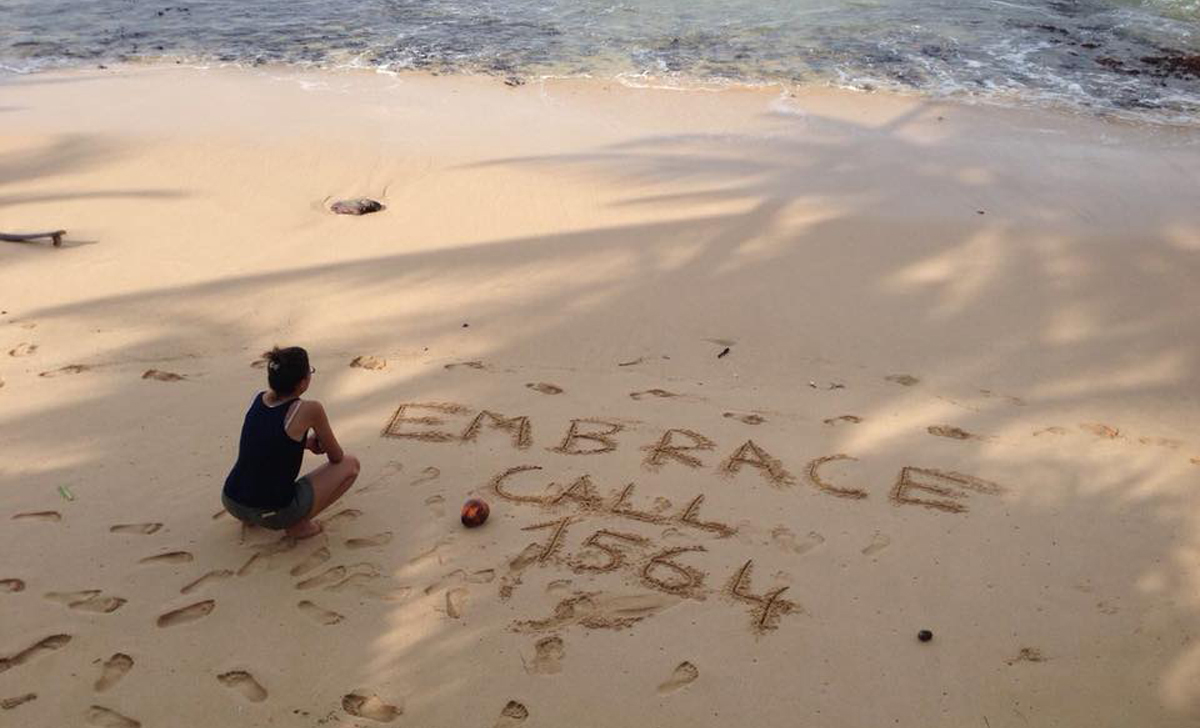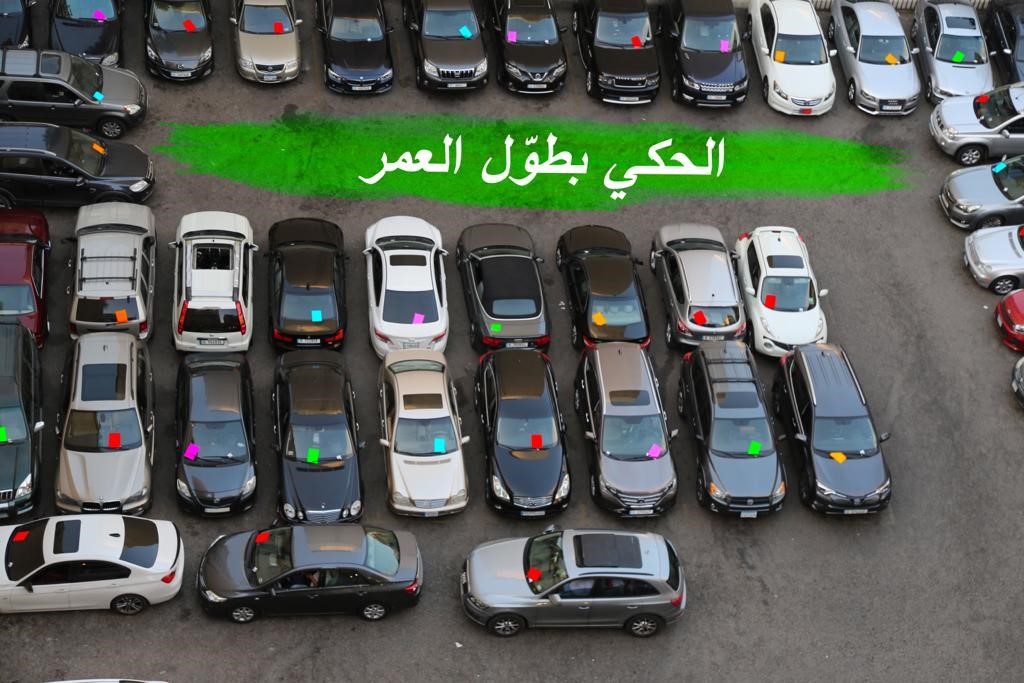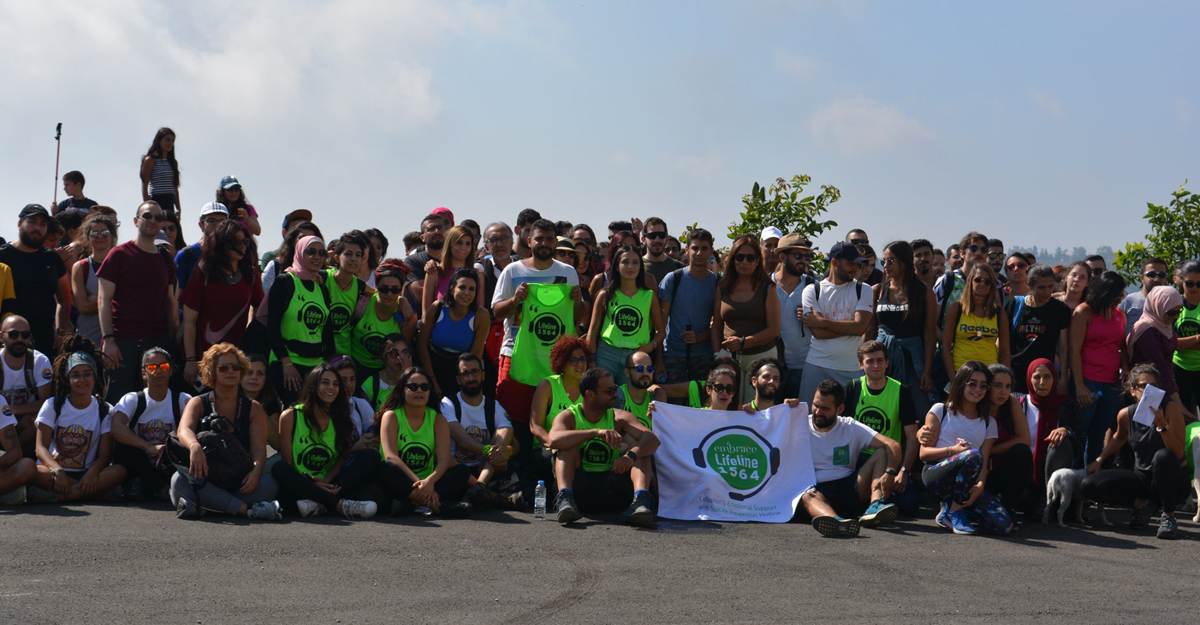To mark World Mental Health Day, we speak with Mia Atoui, co-founder and vice-president of Embrace, to learn about how the organization is tackling the stigma surrounding mental health in Lebanon.

Embrace was founded in 2013 to raise awareness around mental health in Lebanon. What made you decide to help set up the organization?
Back in 2013 Embrace was part of a fund under the umbrella of the Department of Psychiatry at AUBMC. It was founded by a number of mental health professionals as well as people who have lived with mental health issues.
As mental health professionals, we found there was a need to raise awareness on mental health, since it still is a highly stigmatized and taboo subject. What we see when we meet with our clients is that families and individuals still struggle to cope with their mental health problems, which makes it difficult to reach out for help from their community, their loved ones and even from professionals.

Tell us more about Embrace Lifeline, the suicide prevention helpline.
Embrace Lifeline was founded almost two years ago, in 2017. Embrace was the first NGO and institution to look at the rate of suicides in Lebanon. We were interested in those numbers because when mental illnesses are left untreated and become severe they can lead to dire consequences, namely suicides.
Before 2014 we didn’t have accurate numbers when it came to suicide rates in Lebanon. We collaborated with the Internal Security Forces and we looked at the data and it showed that on average we lose one person every 2.5 days to suicide. Between 2012 and 2014 we saw an increase in these rates. They’ve somewhat stabilized in the past two years at an average of around 153 deaths per year. We believe these numbers are underestimated because suicide is still taboo and many families refrain from mentioning the real cause of death in death certificates. We estimate it to be as high as one person every 1.5-2 days.
Given that death by suicide is very different, we wanted to provide a preventive tool for anyone when they are feeling distressed or suicidal. Hotlines have been proven to be an effective tool that can aid individuals in immediate crisis relief and prevent suicides from occurring. Embrace worked on launching the suicide hotline which currently operates from 12 pm to 2 am. We have more than 60 volunteers who are extensively trained in active listening, collaborative problem solving, suicide risk assessment and de-escalation of suicidal crisis.
 What other key projects have you worked on?
What other key projects have you worked on?
The hotline has received over 2,400 calls in the past two years it receives an average of 150-200 calls per month from people of different ages in locations across Lebanon. And while it has been one of our major projects to date, Embrace focuses on awareness and outreach in the community. It has strong collaborations with universities, schools, municipalities, and it is very active in raising awareness on mental health to different communities throughout the country. The hotline is a collaboration with the National Mental Health Program and the Ministry of Public Health and it is the only national suicide hotline in Lebanon and the Middle East.

What is the greatest challenge you face as a mental health NGO in Lebanon?
There are many challenges that NGOs face in Lebanon. One of the main challenges is the gap in governmental institutions’ infrastructure, which makes it difficult for NGOs like Embrace to raise funds to sustain our activities. Therefore, the work of organizations can sometimes be limited.
This lack of structure also impedes some of the work we need to do in terms of advocating for people living with mental illness. Advocacy is one of the main missions of Embrace — to advocate for the right to equal treatment and the right to access treatment.
There is also the challenge of being able to sustain our activities, so we have to rely on donations from our partners and sponsors. This can take a toll and affect an NGO’s ability to remain working.
Another challenge is the fact that these topics continue to be taboo. This means that institutions, even those who are keen on funding NGOs, tend to shy away from supporting mental health awareness because of the stigma associated with it. Because of that, we also find it difficult to raise the awareness needed and do the outreach needed because this topic is still rejected in terms of being discussed in many contexts.
However, this has been changing a lot in recent times due to the work of multiple partners in the country that are working very hard to break the stigma, increase knowledge and provide services that are not yet provided by the government. This mainly comprises affordable treatment; treatment continues to be expensive and is not covered by most insurance companies and third-party payers. It is also very much centralized in cities and in private hospitals, among private clinicians. Therefore, people find it difficult to commute and access the treatment they need, a treatment that is likely to be beyond their financial abilities.

How can people get involved?
People can join our mission in different ways. We encourage anyone who is interested to visit our website (embracelebanon.org), where they can register to become either lifeline operators or volunteers and outreach officers who are interested in raising awareness. People can also be involved through our various fundraising activities or by donating to the NGO.
embrace.org, Embrace Lifeline: 1564
Loading